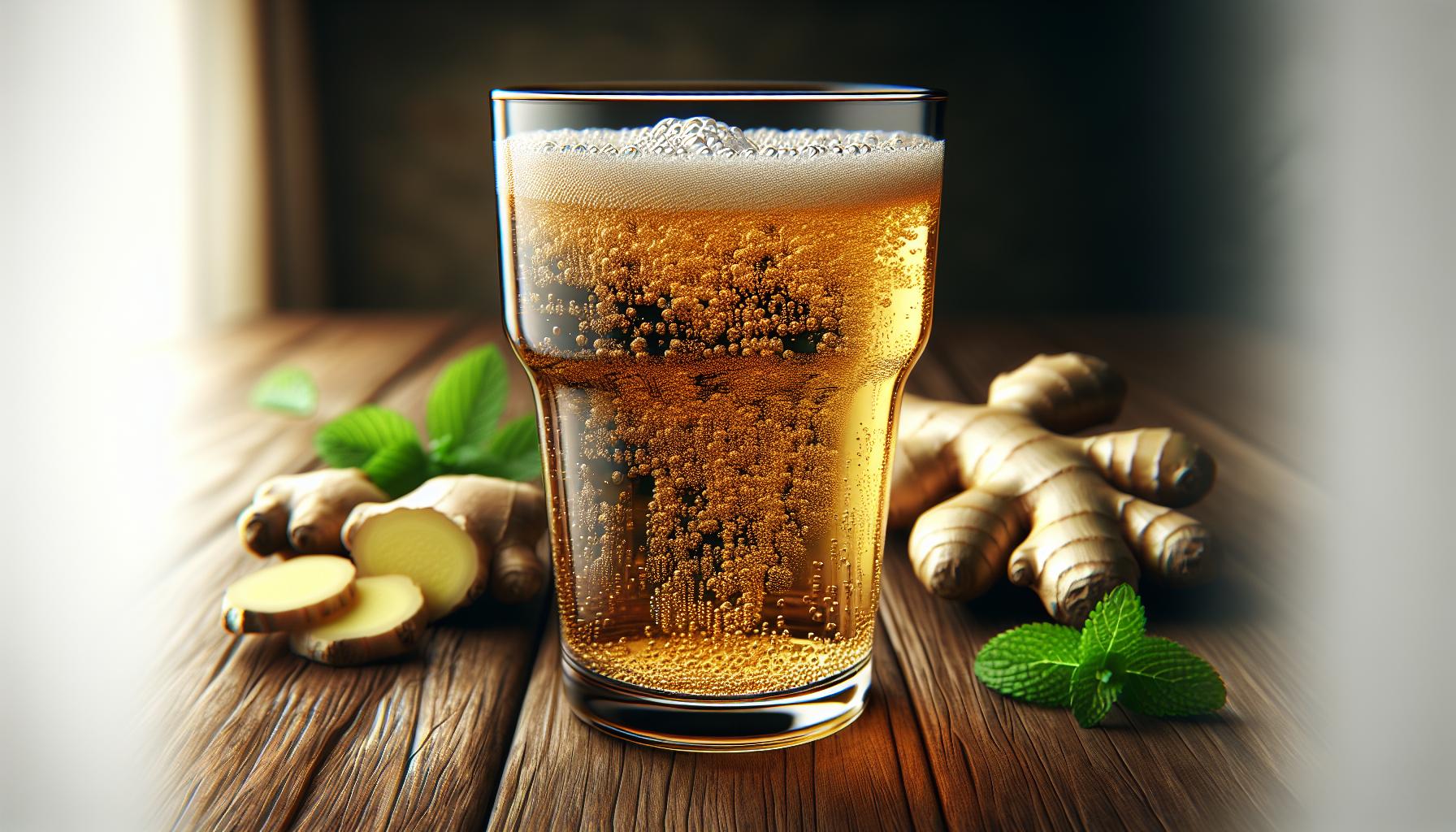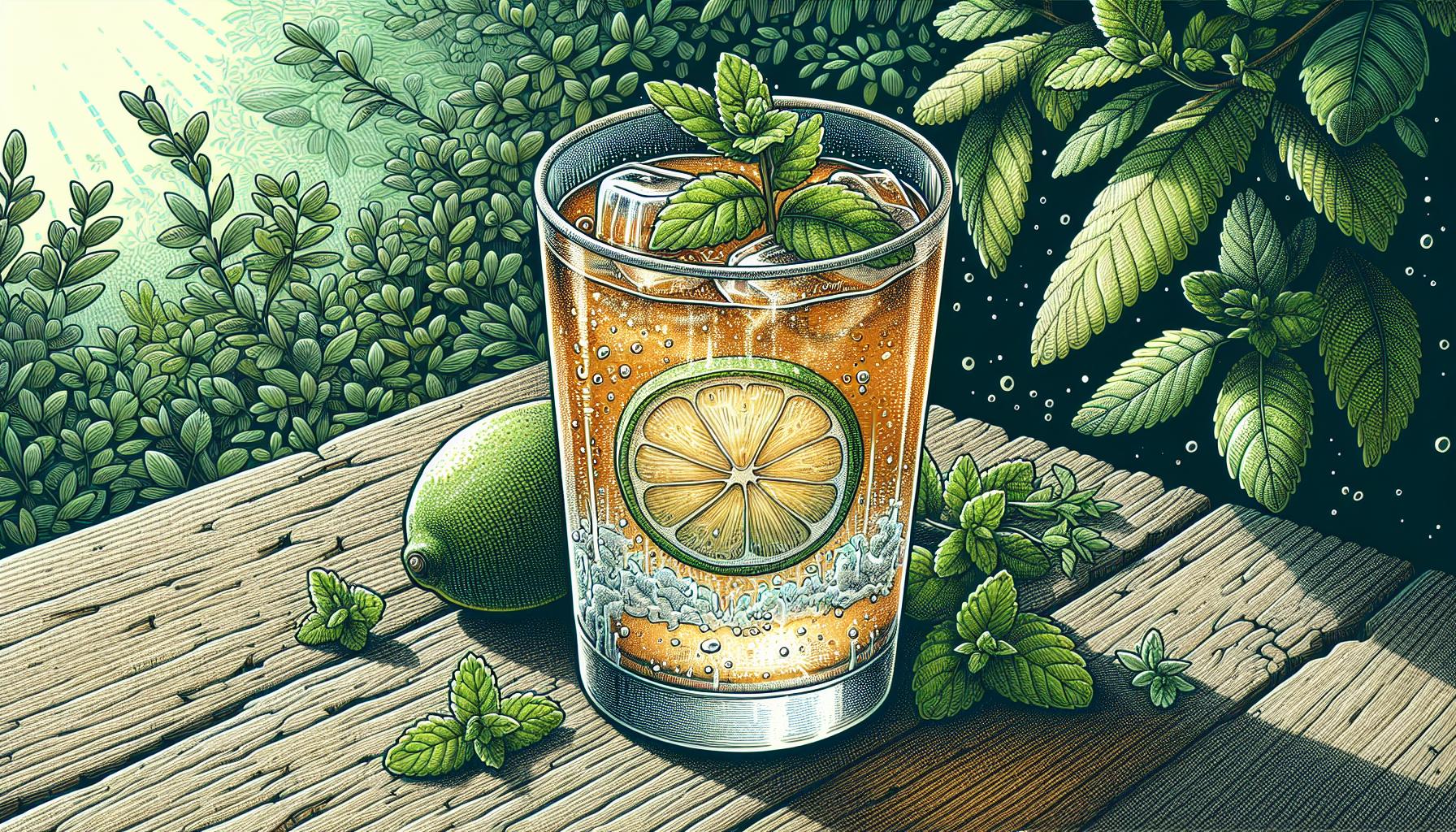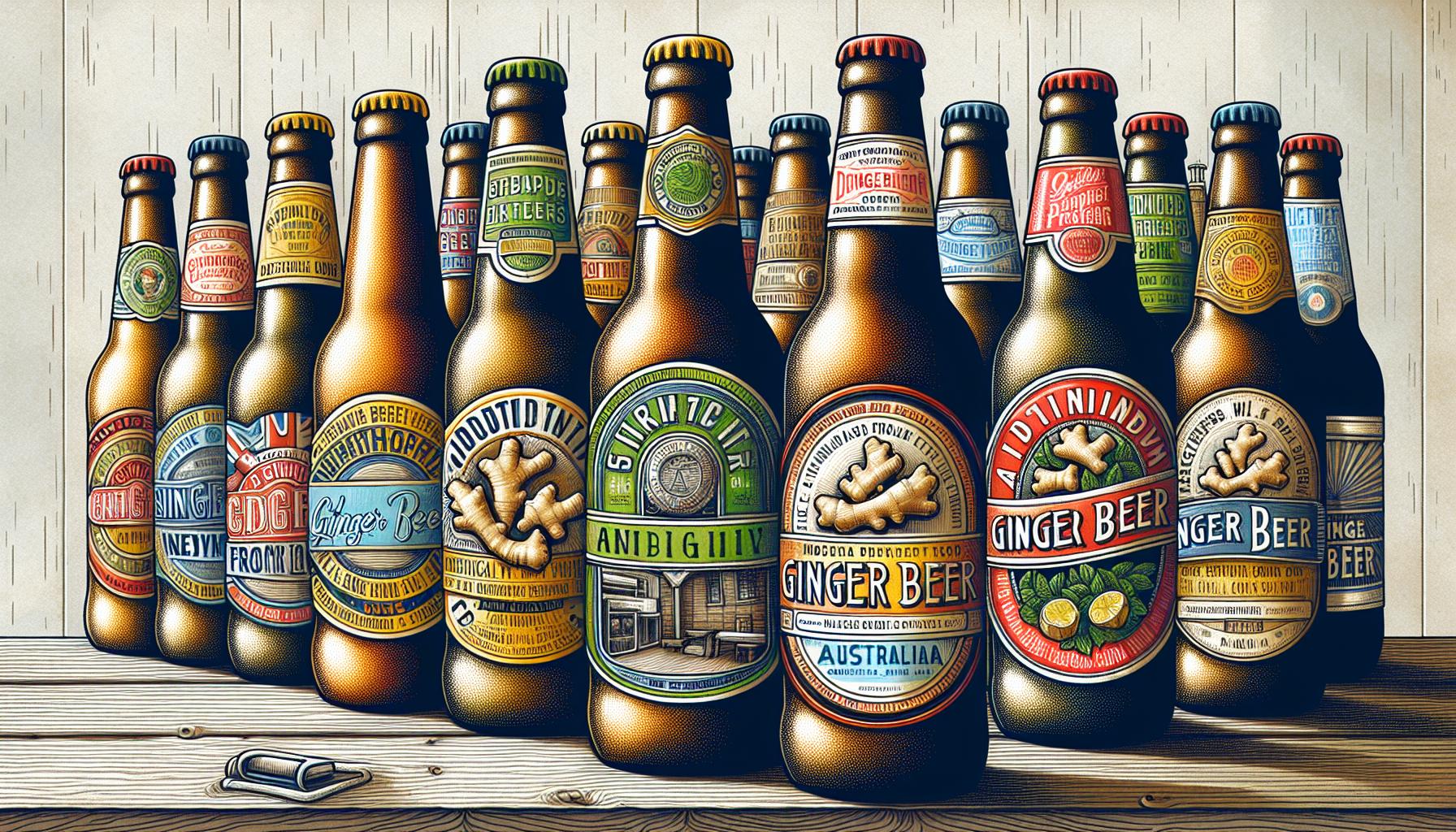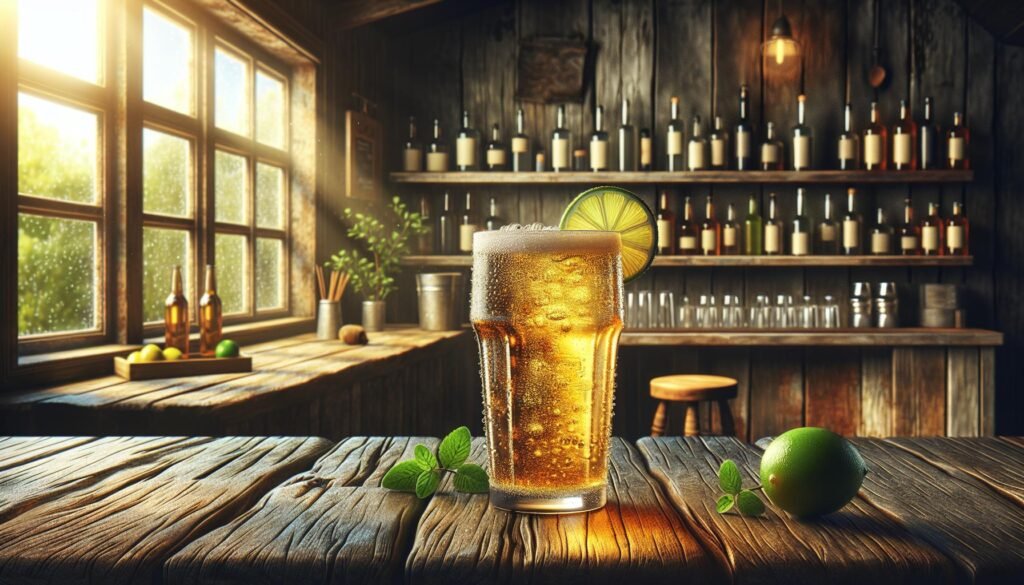Ginger beer has always intrigued me with its unique blend of spice and sweetness. Whether it’s served on its own or as the star ingredient in a Moscow Mule, this fizzy drink has earned its spot in the world of beverages. But one question often pops up—does ginger beer contain caffeine?
With so many drinks packed with hidden ingredients these days, it’s easy to assume ginger beer might have a little caffeine kick. If you’re like me and want to know exactly what you’re sipping, understanding what’s in your favorite drink is key. Let’s dive into what makes ginger beer so special and whether it’s a caffeine-free option you can enjoy any time of day.
What Is Ginger Beer?
Ginger beer is a carbonated beverage known for its spicy ginger flavor and subtle sweetness. It’s often mistaken for ginger ale but has distinct differences in taste, preparation, and usage.
History Of Ginger Beer
Ginger beer originated in England in the 18th century. It was initially a fermented alcoholic beverage created by blending ginger, sugar, water, and a starter culture known as “ginger beer plant.” By the mid-19th century, the drink gained popularity in the UK and beyond, becoming a staple refreshment. Modern variations typically contain little to no alcohol due to changes in production techniques and regulations.
How Ginger Beer Is Made
Modern ginger beer is produced through a controlled brewing or carbonation process. Traditional recipes involve fermenting ginger root with sugar and water, creating natural effervescence. Contemporary commercial ginger beer uses carbonated water, natural or artificial flavors, and sweeteners. Fermentation is often skipped to ensure consistent alcohol-free results.
Does Ginger Beer Have Caffeine?

Ginger beer doesn’t contain caffeine in most cases, making it a suitable option for those seeking caffeine-free beverages. Its ingredients and production process differ from many caffeinated drinks.
Comparing Ginger Beer To Other Beverages
Caffeinated sodas like cola and energy drinks often include added caffeine to enhance alertness. Ginger beer contrasts these beverages in two key ways: flavor profile and caffeine content. While sodas emphasize sweetness with subtle flavors, ginger beer’s spice-forward taste comes from natural ginger root. Unlike tea or coffee, which naturally contain caffeine due to plant compounds, ginger beer relies on ginger for its pungency without naturally occurring or added caffeine.
For a comparable caffeine-free option, consider root beer. Similar to ginger beer, it offers bold flavors without introducing caffeine unless specifically added.
Ingredients In Ginger Beer
Traditional ginger beer contains ginger, sugar, water, and sometimes yeast for fermentation. Modern versions typically use carbonated water, citric acid, natural or artificial ginger flavoring, and sweeteners. These ingredients inherently lack caffeine, ensuring ginger beer retains its caffeine-free status. Always check labels, as some brands may include additives like preservatives, but added caffeine is rare.
Health Benefits And Concerns Of Ginger Beer

Ginger beer offers several health benefits while presenting a few concerns depending on its preparation and consumption. Its caffeine-free nature and use of natural ginger make it appealing to many, especially those looking for spiced yet non-caffeinated options.
Caffeine-Free Alternatives For Caffeine-Sensitive Individuals
I find ginger beer to be an excellent choice for caffeine-sensitive individuals. Since most ginger beers lack caffeine, they serve as a flavorful substitute for caffeinated options like sodas or energy drinks. Beyond ginger beer, other caffeine-free beverages include fruit-based drinks, herbal teas, and sparkling waters. These alternatives, like ginger beer, provide variety without introducing stimulants.
Nutritional Profile Of Ginger Beer
The nutritional content of ginger beer varies by brand and preparation. A typical 12 fl oz serving contains 120–150 calories, 30–40 grams of sugar, and no fat or protein. However, some artisanal or low-sugar varieties offer reduced sugar content. Ginger beer often contains antioxidants from real ginger, potentially aiding digestion and reducing inflammation. It’s important to check the label since mass-produced brands might include additives or artificial sweeteners that could diminish its potential health benefits.
Popular Brands Of Ginger Beer

Ginger beer is offered by several brands, each with unique flavors and ingredient profiles. Examining these brands helps clarify their caffeine content and suitability for different preferences.
Caffeine Content In Different Brands
Understanding caffeine levels in ginger beer brands ensures informed choices. Most brands produce caffeine-free options.
- Bundaberg – This Australian brand is known for its strong flavor and natural ingredients. Bundaberg ginger beer contains no caffeine and is brewed using a traditional fermentation process.
- Fever-Tree – Known for premium mixers, Fever-Tree’s ginger beer is caffeine-free and crafted with a blend of three types of ginger for a spiced profile.
- Reed’s – Reed’s ginger beer comes in several varieties, including Extra and Stronger Ginger Brew, all of which are caffeine-free and contain real ginger.
- Goslings – Goslings Stormy Ginger Beer, typically mixed with rum, is caffeine-free but offers a bold, spicy taste.
- Q Mixers – Q Ginger Beer uses organic agave for sweetness and real ginger but contains no caffeine, making it a premium caffeine-free choice.
Certain smaller craft brands might produce caffeinated versions for niche markets. Always check labels to confirm ingredient specifics.
Choosing The Best Option For Your Needs
Selecting the best ginger beer depends on taste preferences, dietary restrictions, and intended use.
- Cocktail Mixing – Fever-Tree and Q Mixers pair well in cocktails due to their balanced flavors.
- Spice Lover – Reed’s offers an extra-spicy kick, ideal for those seeking bold ginger intensity.
- Low-Calorie or Less Sweet – Q Mixers uses agave for a lighter sweetness, appealing to those monitoring sugar intake.
- Authenticity – Bundaberg provides artisanal quality with its brewed process and rich taste.
Look for brands emphasizing natural ingredients if prioritizing health and flavor. Labels often reveal additives, calorie counts, and sugar levels.
Conclusion
Ginger beer offers a bold, flavorful experience without the need for caffeine, making it a standout choice for anyone seeking a spiced yet refreshing beverage. Its versatility, from being a cocktail mixer to a standalone drink, adds to its appeal.
Whether you’re drawn to its natural ginger benefits or simply enjoy its unique taste, ginger beer remains a reliable caffeine-free option. Just remember to check labels for ingredients and sugar content to find the perfect fit for your preferences and lifestyle.
Frequently Asked Questions
What is ginger beer?
Ginger beer is a carbonated beverage known for its spicy ginger flavor and subtle sweetness. Traditionally, it was a fermented alcoholic drink, but modern versions are usually non-alcoholic and made with ginger, sugar, and water, either naturally or artificially flavored.
Does ginger beer contain caffeine?
No, most ginger beer brands do not contain caffeine. It is a naturally caffeine-free beverage, making it a great choice for those avoiding caffeinated drinks.
How is ginger beer different from ginger ale?
Ginger beer has a stronger, spicier ginger flavor and a mildly sweet profile, while ginger ale is typically milder and sweeter, more like a classic soda.
Is ginger beer healthy?
Ginger beer can offer some health benefits due to ginger’s natural antioxidants. However, it often contains sugar, so it’s best consumed in moderation. Check labels for sugar content or additives when selecting a brand.
Can ginger beer be used in cocktails?
Yes, ginger beer is a popular ingredient in cocktails, such as the Moscow Mule and Dark ’n’ Stormy, due to its spicy and sweet flavor profile.
Are there low-calorie ginger beer options available?
Yes, many brands now offer low-calorie or reduced-sugar ginger beer options. Be sure to read the label to find one that suits your dietary needs.
What are some popular caffeine-free ginger beer brands?
Popular caffeine-free ginger beer brands include Bundaberg, Fever-Tree, Reed’s, Goslings, and Q Mixers. These brands offer a variety of flavors and are widely available.
How many calories are in ginger beer?
A standard 12 fl oz serving of ginger beer typically contains 120–150 calories and 30–40 grams of sugar. Artisanal or diet versions may have fewer calories.
Are all ginger beers non-alcoholic?
Most modern ginger beers are non-alcoholic, but traditional ginger beer was fermented and contained alcohol. Always check the label if you are unsure.
What should I look for when choosing a ginger beer?
When choosing ginger beer, check the label for natural ingredients, sugar content, additives, and your preferred flavor intensity. Decide based on your taste preferences and dietary needs.
